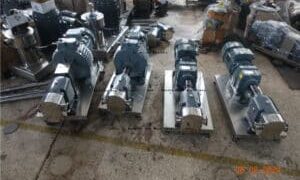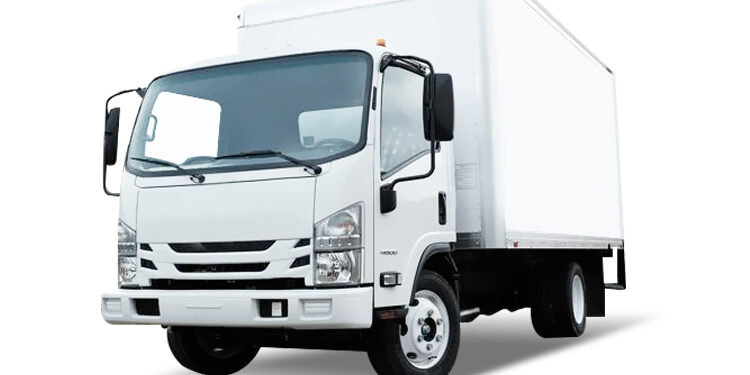A 26ft reefer box truck stands as a vital cog in the intricate machinery of modern logistics, particularly when the integrity of temperature-sensitive goods hangs in the balance. These specialized vehicles, essentially refrigerated mobile warehouses, play an indispensable role in ensuring that everything from perishable food items and pharmaceuticals to delicate chemicals and even certain types of electronics reach their destination in optimal condition. Understanding the nuances of a 26ft reefer box truck – its capabilities, applications, and the considerations involved in its operation – is crucial for businesses across a spectrum of industries.
At its core, a reefer box truck is a standard box truck chassis fitted with an insulated cargo box and a refrigeration unit. The 26-foot designation refers to the approximate length of this cargo box, making it a versatile size that balances significant carrying capacity with relative ease of maneuverability in urban and suburban environments. This length often allows for the accommodation of multiple pallets of goods, making it an efficient solution for regional and even some longer-haul deliveries.
The defining characteristic of a 26ft reefer box truck is its ability to maintain a precisely controlled temperature within the cargo area, regardless of the external climate. This is achieved through a combination of robust insulation in the walls, roof, floor, and doors of the cargo box, and a powerful refrigeration unit typically mounted at the front of the box. These refrigeration units are sophisticated systems capable of cooling the interior to temperatures ranging from well below freezing to moderately warm, depending on the specific requirements of the cargo. Advanced temperature control systems often allow for precise setting and monitoring, providing a documented chain of custody for temperature-sensitive products.
The applications of a 26ft reefer box truck are diverse and span numerous sectors. The food industry is perhaps the most prominent beneficiary. From transporting freshly harvested produce from farms to distribution centers and ultimately to grocery stores, these trucks ensure that fruits, vegetables, and other perishables remain fresh and safe for consumption. Similarly, meat, poultry, dairy products, and frozen foods rely heavily on refrigerated transport to maintain their quality and prevent spoilage. The pharmaceutical industry also depends critically on 26ft reefer box trucks to move vaccines, medications, and other temperature-sensitive medical supplies, ensuring their efficacy and safety. Beyond these core sectors, these trucks are also utilized for transporting flowers, certain chemicals, and even specialized electronics that require temperature control during transit.
Operating a 26ft reefer box truck involves a unique set of considerations compared to standard dry freight transport. Temperature management is paramount. Drivers and logistics personnel must be meticulously trained on how to properly load the truck to ensure adequate airflow around the cargo, preventing hot spots and maintaining consistent temperature throughout the load. Pre-cooling the cargo box before loading is often necessary to ensure that the refrigeration unit doesn’t have to work excessively hard to bring the temperature down. Regular maintenance of the refrigeration unit is also critical to prevent breakdowns and ensure reliable operation, as a failure can lead to significant financial losses due to spoiled cargo.
Regulations surrounding the transportation of temperature-sensitive goods are stringent and vary depending on the type of cargo and the jurisdiction. Compliance with these regulations, including temperature logging and documentation, is essential for businesses utilizing 26ft reefer box trucks. Electronic logging devices (ELDs) and telematics systems are increasingly integrated into these vehicles, providing real-time temperature monitoring, location tracking, and other crucial data that aids in compliance and operational efficiency.
Choosing the right 26ft reefer box truck involves several factors. The specific temperature requirements of the primary cargo will dictate the necessary cooling capacity of the refrigeration unit and the level of insulation required. The anticipated routes and distances will influence fuel efficiency considerations and the need for auxiliary power units (APUs) to run the refrigeration unit when the truck’s engine is off. Payload capacity, the number of pallets that need to be transported, and the ease of loading and unloading are also important factors. Businesses must also consider the initial purchase cost, ongoing maintenance expenses, and the availability of qualified technicians for servicing the refrigeration unit.
The evolution of 26ft reefer box truck technology continues to enhance their efficiency and capabilities. Advancements in insulation materials are leading to lighter and more effective cargo boxes. More fuel-efficient and environmentally friendly refrigeration units are being developed, incorporating technologies like electric standby capabilities and natural refrigerants. Telematics and data analytics are providing valuable insights into operational performance, allowing for optimized routing, predictive maintenance, and improved temperature control.
The size of a 26ft reefer box truck offers a sweet spot for many businesses. It provides a substantial cargo capacity, often ranging from 10 to 14 standard pallets, making it suitable for significant regional deliveries or multiple stops within a city. Unlike larger tractor-trailer units, a 26ft reefer box truck is generally easier to maneuver in congested urban areas, navigate tight loading docks, and comply with certain city-specific size restrictions. This versatility makes it a popular choice for direct store delivery (DSD) operations and last-mile logistics for temperature-sensitive goods.
The lifespan and resale value of a 26ft reefer box truck are influenced by factors such as the quality of the chassis and refrigeration unit, the frequency and quality of maintenance, and the operating environment. Regular preventative maintenance, including oil changes, filter replacements, and refrigeration system checks, is crucial for maximizing the lifespan and maintaining the resale value of these assets. Proper cleaning and care of the insulated cargo box also contribute to longevity and prevent contamination.
In conclusion, the 26ft reefer box truck is a critical asset in the cold chain logistics network. Its ability to provide reliable temperature-controlled transportation for a wide range of perishable and temperature-sensitive goods makes it indispensable for industries such as food, pharmaceuticals, and more. Understanding the operational requirements, regulatory landscape, and technological advancements associated with these specialized vehicles is essential for businesses seeking to ensure the safe and efficient delivery of their temperature-critical products. The balance of capacity and maneuverability offered by a 26ft reefer box truck ensures its continued importance in the evolving world of transportation and logistics.





























